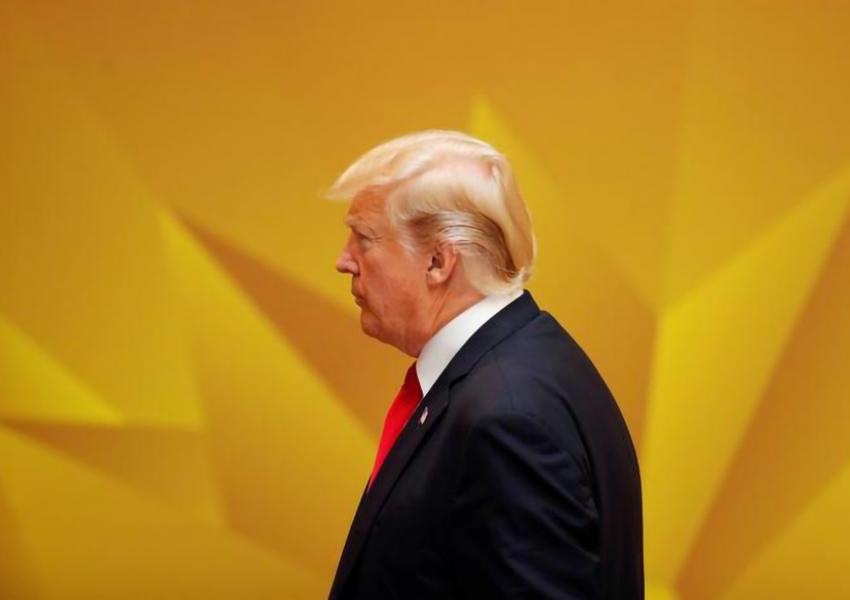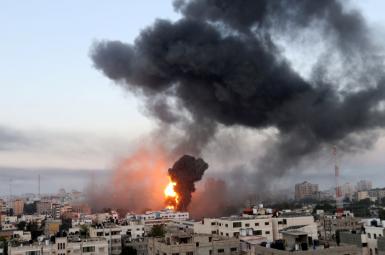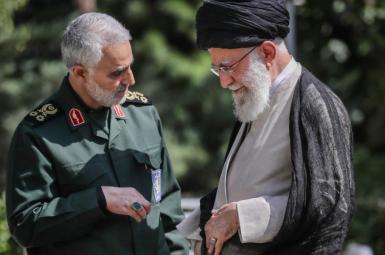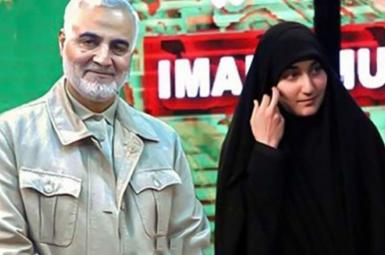
Does Trump Have Unfinished Business With Iran?
The Virginia-based Axios news website produced a stir this week citing senior Israeli officials that Israel’s defense forces had been instructed to prepare for President Donald Trump ordering a United States military strike on Iran before leaving office on January 20. Israel’s concern, the officials said, was Iranian retaliation, either directly or through allies in Syria, Lebanon or the Palestinian territories.
This is not the first suggestion that Trump has unfinished business with Iran. On November 16, the New York Times reported that the president − on hearing Tehran’s nuclear fuel stocks were twelve times the limits of its 2015 nuclear deal with world powers − raised the option of attacking Iran’s Natanz atomic facility, only to be talked down by Secretary of State Mike Pompeo, Chairman of the Joint Chiefs Mark Milley, and others.
Terry Sullivan, politics professor and executive director of the non-partisan White House Transition Project, said Trump was behaving across the board like no other outgoing president. “They are upping tension in Iran, which could lead to a confrontation,” he said. “The economy is tanking and they are not doing anything about unemployment benefits.”
Filling vacancies, deterring aggression
Despite few public appearances since the November 3 election, Trump has been active in filling long-term federal vacancies, rushing through sales of oil leases, curbing Covid-19 lending programs, and ordering the executions of convicted criminals. He has pardoned one associate, Michael Flynn, and is expected to pardon others.
Trump’s likely behavior in his final eight weeks was surely on the agenda during Sunday’s meeting of Israeli Prime Minister Benjamin Netanyahu, Saudi Crown Prince Mohammed bin Salman, and Pompeo in the Saudi Red Sea city of Neom. Israeli defense minister Benny Gantz has also spoken twice to Christopher Miller, Trump’s acting defense secretary whom he appointed after firing Mark Esper on November 9.
Seasoned Israeli analyst Yossi Alpher has suggested that one purpose of the Neom meeting was to forge a new “Middle East lobby” of Israel and Saudi Arabia to approach President-elect Joe Biden – although it was also noted in Israel that Pompeo’s regional tour was accompanied by B52 bombers on what US Central Command called a “short-notice, long-range mission into the Middle East to deter aggression and reassure US partners and allies.”
Tying hands, removing troops
Can Trump go beyond “reassurance”? Some analysts suggest he is trying to tie his successor’s hands by, for example, extending sanctions on Iran that might be politically difficult for Biden to reverse.
Trump’s troop reductions in Iraq from 5,000 to 2.500 might fit this category, given many of Biden’s fellow Democrats would like to see US forces leave Iraq. But the Russian media has already reported Trump’s withdrawal encouraging Baghdad to look to Moscow for greater defense cooperation, including the supply of S300 missiles.
Shia militia allied to Tehran could also benefit from a reduced US role, which the Trump administration may be trying to forestall by increasing pressure on Prime Minister Mustafa al-Kadhimi. The Trump administration has reduced to 45 days its waiver for Iraqi imports of gas and electricity from Iran, leaving open the possibility of scrapping the waiver entirely by January 20.
Another reading of Trump’s Iran moves is suggested by his Iran envoy Eliott Abrams, who this week urged Biden’s team to use new sanctions – which he said would be extended “right until the end” – as leverage to extract concessions from Tehran. Trump also strengthened emphasis on Iran’s missiles with sanctions announced Wednesday on four entities in China and Russian tied to Tehran’s ballistic program.
Across the Middle East, a lively eight weeks is anticipated. Trump’s acting defense secretary Miller arrived in Bahrain on Wednesday, beginning a Middle East tour that is his first international trip in the office. The Pentagon said Miller would meet “US commanders and host nation leaders to address security interests and priorities of countering violent extremism and combating malign activities that threaten the sovereignty and stability of the region.” That means Iran.








